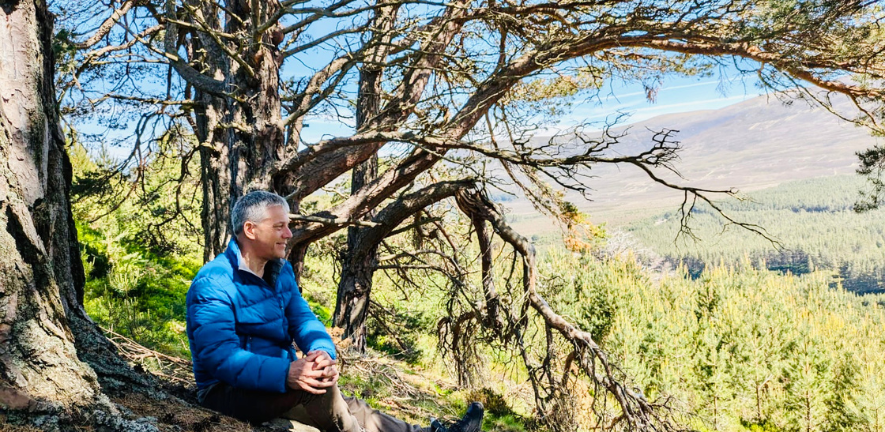
As part of our celebrations to mark 300 years since the appointment of the first Professor of Botany, some of our current academics have written short research stories to help give you an insight into current areas of interest and future research challenges.
If you are interested in finding out more, including how you might be able to support our academics in their future research endeavours, please get in touch with them directly.
A wilder future: reclaiming marginal agricultural lands for nature recovery
David Coomes, Head of Forest Ecology and Conservation Group
Problem we’re looking to solve
Despite the challenges facing biodiversity conservation, there are reasons for optimism. The global population is expected to level off at around nine to ten billion people by the end of this century, which could help ease pressure on natural habitats. While presenting its own challenges, urbanization also offers opportunities for environmental recovery. As more people move to cities, economically marginal agricultural lands are being abandoned and providing landscapes in which wildlife is recovering. These demographic and economic shifts, combined with growing environmental awareness and technological advancements, suggest that biodiversity conservation is not a lost cause but rather a challenge that humanity has the potential to address effectively.
Why Cambridge and why now
Cambridge is among the best places in the world to study nature recovery. The University is committed to research and training in biodiversity conservation. In 2015 it supported the creation of the Cambridge Conservation Initiative (CCI), a unique collaboration between the University and ten international conservation organisations, housed in the David Attenborough Building in central Cambridge. CCI is host to the Endangered Landscapes and Seascapes Programme, which has received over $138 million from Arcadia to support large-scale ecosystem restoration projects across Europe. This significant funding demonstrates the University’s commitment to addressing the urgent need for ecosystem restoration in the face of biodiversity loss and climate change.
Research on regeneration and nature recovery
I co-lead the Centre for Landscape Regeneration in Cambridge. This is an interdisciplinary research hub dedicated to revitalizing the countryside through nature-based solutions, with £10 million of support from UK Research and Innovation. We are conducting research to address the interacting challenges of biodiversity loss and climate change in the East Anglian fens, the Scottish Highlands and uplands of Cumbria, working alongside the practitioners funded by the Endangered Landscapes and Seascapes Programme. Our work encompasses a wide range of disciplines, ensuring a holistic approach to landscape regeneration that considers the complex interactions within ecosystems and the socio-economic factors influencing environmental change.
My research group is providing the evidence needed to deliver effective nature recovery. I enjoy leading multidisciplinary teams working together to resolve complex problems.
Besides this managerial role, I am interested in the application of remote sensing and advanced computing. For example, conservationists often hope to finance restoration using carbon credits but there are many barriers to achieving this goal, so we have developed new tools to quantify the effectiveness of projects at storing carbon that are based on open code and data. Our carbon credits project makes use of data from a remarkable sensor developed by NASA that has taken billions of measurements of forest carbon from space.
We are currently working with computer scientists on an AI approach that will allow us to bring together satellite imagery from multiple sources to straightforwardly answer questions that would have previously required months of analysis by experts. We hope to use these foundation models to understand how human interventions including restoration are affecting biodiversity globally.
Future ambitions
More than 100 countries have committed to protecting 30% of land and sea by 2030 under the UN Convention on Biological Diversity. So now is the moment to build an evidence base of what works in landscape restoration. The Centre for Landscape Regeneration works closely with the UK government to achieve transformational change in the British countryside. Over the next five years, I hope to expand activities into other regions of Europe, as well as the biodiverse tropics.
If we resolve the problems that are currently holding back habitat restoration at scale, we envisage a future in which nature’s decline is reversed to the benefit of people globally.
Photo: David Coomes on a fieldwork trip in the Cairngorms, Scottish Highlands. Credit: © Brian Leith Productions / Matt Waddleton 2024.

